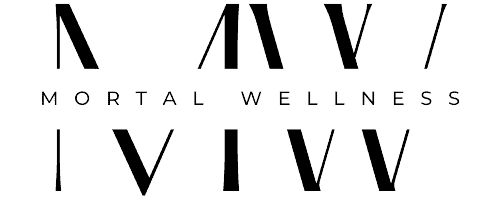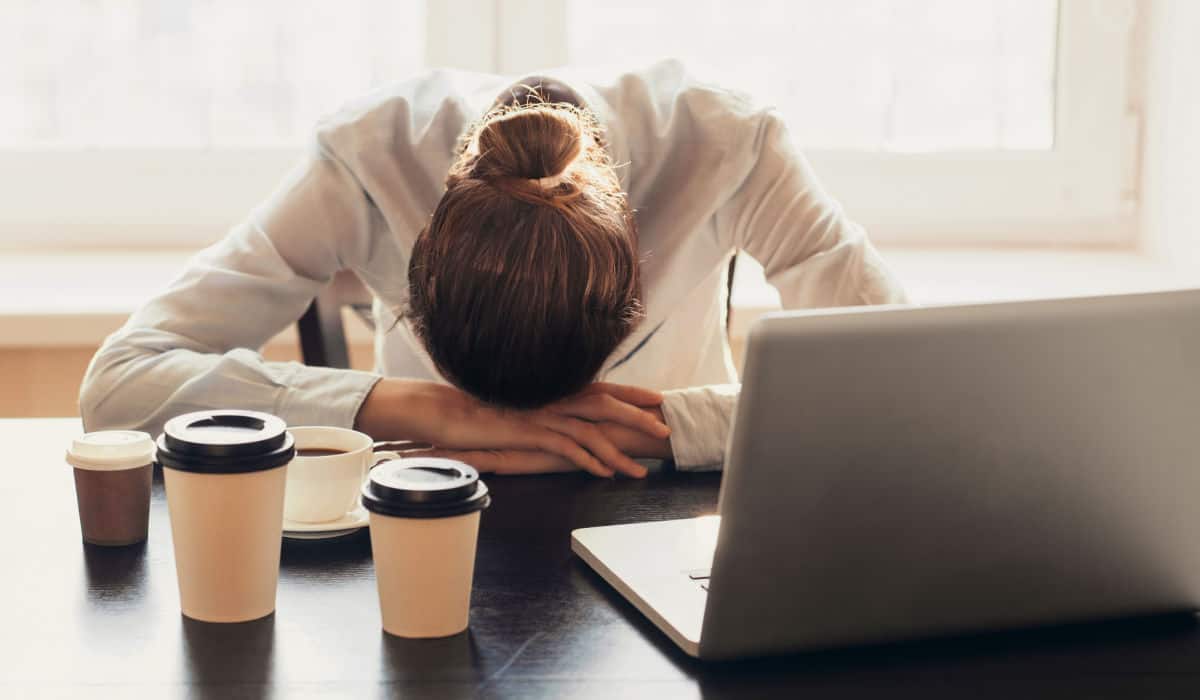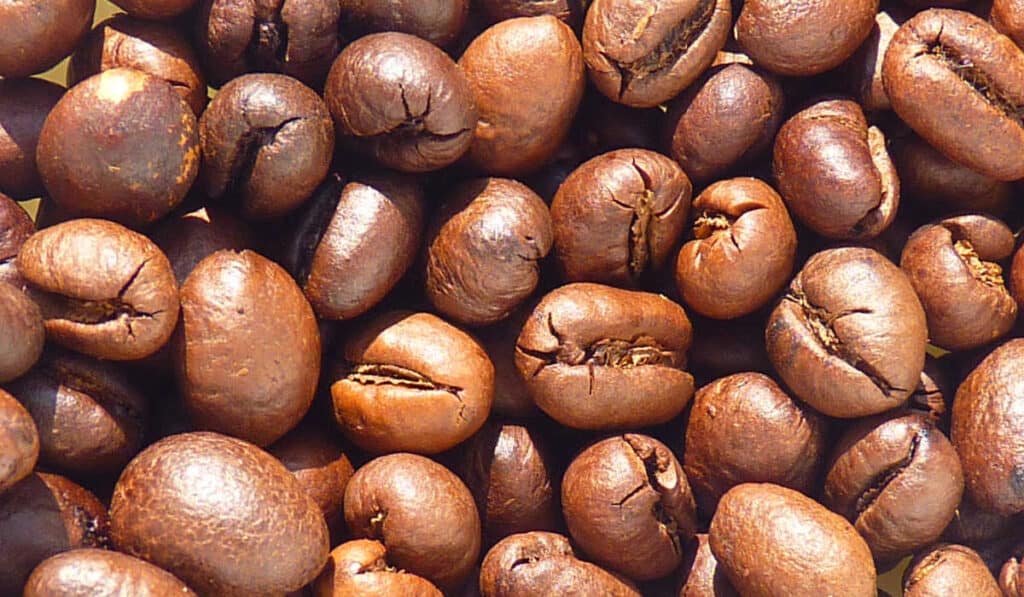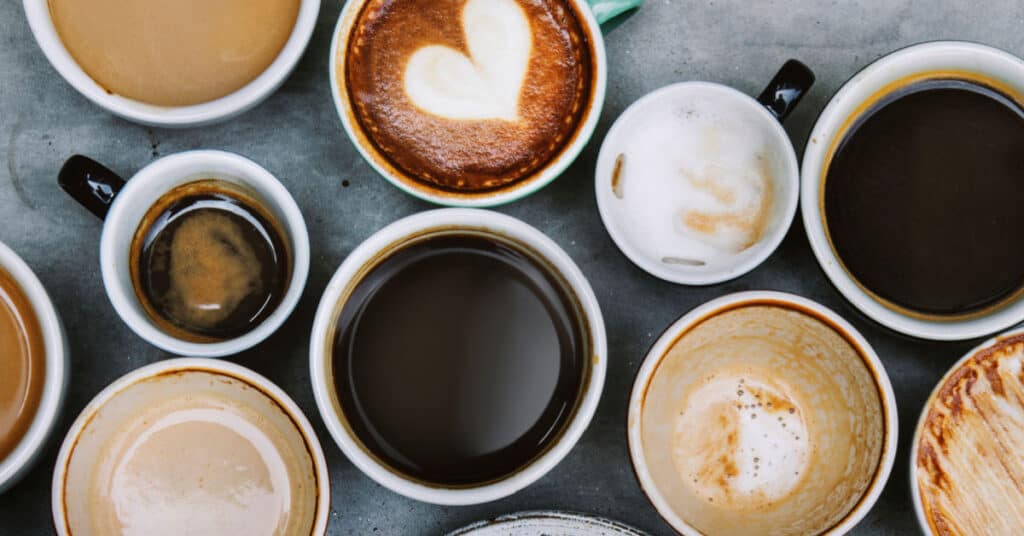As an Amazon Associate I earn from qualifying purchases.
For years I would stumble to the kitchen at 6:30 in the morning to get an infusion of caffeine so I could make my daughter breakfast and get her to school on time. During that time I tried coffee, cold brew, caffeinated hot chocolate, crystal light packets, and just about anything else you could think of that promised to wake me up.
None of them really worked.
I thought for the longest time that it was the same for everyone. It turns out, however, that coffee not waking me up was a problem I shared with a sizable minority of people. So if coffee doesn’t wake you up let’s actually look into the mechanisms and figure out why.
Even if we can’t solve the problem we should at least be able to shed some light on why coffee doesn’t make you feel more awake and how you can use it in a healthier way!
2 Reasons Coffee Doesn’t Wake You Up
1. Caffeine Doesn’t Do That (For Most People)
If you rarely ever drink coffee or have caffeine, you will get a boost when you drink coffee. However, if you’re a regular drinker, you probably won’t, leading to your complaint: “coffee doesn’t wake me up!”
That doesn’t make any sense, though, right? Because even as someone who drinks coffee all the time, you do feel a lift when you drink your morning cup. The truth is that it’s not what you think.
As a regular coffee consumer, that lift you feel when you drink coffee is just your body returning to normal after a night of sleep. If you drink coffee on a regular basis, you likely have a caffeine addiction and go into withdrawal at night when you have to sleep for hours without it. So drinking that first cup of coffee relieves the caffeine withdrawal symptoms that you’re experiencing.
What does this mean? If you want coffee to actually be effective for you, you should probably cut down on your coffee drinking. That would mean that you’d have to deal with caffeine withdrawal for a couple of weeks, but when you actually drink coffee, you would get the boost that you’re seeking.
Basically, you need to lose your caffeine tolerance. In many cases, this is the only way you can get the caffeine to be effective again. And then you can get addicted all over!
2. You Don’t Have Energy Reserves To Draw From
A lot of people think that drinking a lot of caffeine is an adequate substitute for getting enough sleep.
The truth is, caffeine does not give you energy. It simply tricks your body into thinking that it has more energy. This causes your body to reapportion the energy it has available. You have to pay the piper some time and this usually happens 3-4 hours later when your body has metabolized enough of the caffeine that you crash.
Many people skimp on sleep and think it doesn’t matter because they can just drink all the coffee they need the next day, and they’ll be fine.
However, that isn’t how it works. A new study suggests that caffeine becomes less effective for people who are chronically sleep-deprived.
The researchers don’t know exactly why this seems to be the case, but it’s what they observed. It could be due to the way that caffeine acts in the human body. When caffeine binds to the adenosine receptors in your brain (adenosine is a sleep-inducing chemical), you feel more alert.
However, when you’re always sleep-deprived, your body produces more adenosine. Scientists think that it’s possible that these extra adenosine molecules could be blocking the caffeine molecules from being able to bind to the receptors. Of course, that would explain why caffeine seems to be less effective in people who are sleep-deprived.
Caffeine Tolerance – How Is Reduces Coffee’s Effectiveness
Most likely, there’s a clear reason why you’re lamenting, “coffee doesn’t wake me up.” You’ve probably built up a tolerance to caffeine.
My father-in-law likes to brag that he could drink a Monster energy drink and go right to sleep. That’s not normal and, if that is true for you, you should probably think about fixing your tolerance.
So what is caffeine tolerance and how can you reset it?
How Caffeine Tolerance Works
Caffeine tolerance involves feeling the effects of caffeine less and less as you consume it more often. If you’re consuming caffeine for the first time or haven’t had it in a while, you have zero tolerance for it. This is when caffeine will have the most potent effect on you.
Many people describe caffeine as having certain enjoyable effects. These include extreme alertness, positive and euphoric feelings, higher energy levels, and higher motivation.
You feel these effects at their strongest the first time you consume caffeine. Drinking the exact same drink the next day, you’ll experience the same results, but they won’t be as strong.
Once you’ve become a regular coffee drinker, you’ll just feel normal with caffeine. You won’t really experience the positive effects anymore. At this point, you just need that daily dose of caffeine in order to not feel extremely fatigued and tired.
How To Detox From Caffeine & Reset Your Tolerance
In order to solve the problem and no longer deal with the frustrating “coffee doesn’t wake me up” issue, you’ll need to reset your caffeine tolerance. You might need to do this repeatedly if you’re a big coffee drinker.
As your body becomes more and more used to consuming caffeine, you’ll need to have more and more of it in order to experience the same effects that you enjoyed so much at first.
You can do this in a couple of ways. If you really rely on coffee in order to function, you can gradually reduce the amount of caffeine that you have every day. You can substitute more and more of your morning coffee with decaf, for example.
If you feel you can go cold turkey, you can try that as well. That might be better for people who don’t drink a lot of coffee, to begin with. It can be tough to deal with the withdrawal symptoms that go with going cold turkey if you rely heavily on coffee just to maintain your normal energy levels.
Either way, once you get to the point where caffeine is out of your system, you’ll start experiencing the effects that you loved so much in the first place. Until, of course, your caffeine tolerance builds up again. Then, you’ll have to repeat the whole process.
Coffee Doesn’t Wake Me Up, Should I Still Drink It?
You should feel free to continue drinking coffee, even if you continue to claim, “coffee doesn’t wake me up.” If you want to reset your caffeine tolerance, as you have seen, there are methods you can try. Also, you should make sure that you understand that you shouldn’t be relying on coffee to wake you up.
Even though anything in excess is probably a bad idea, you have seen that there are many health benefits that come with drinking coffee. You can keep drinking coffee if that is a part of your daily routine, but remember not to let it get to the point where it’s too much.
Whether you prefer regular black coffee or a sugary cappuccino beverage, coffee isn’t taboo. You don’t have to remove it from your morning routine. Just be aware that you shouldn’t hold it responsible for not being able to wake up properly.
4 Health Benefits of Caffeine
Despite everything we’ve just told you, caffeine isn’t entirely bad. There are actually many health benefits that you can experience when you consume caffeine.
1. Nutrition
It’s pretty unlikely that you look to your morning cup of coffee for nutrition. However, it’s actually not bad in terms of what it has to offer.
Your coffee contains nutrients, including vitamin B2, vitamin B3, vitamin B5, potassium, magnesium, and manganese. It’s also very high in antioxidants. In fact, in Western countries, there are a lot of people who get more of their antioxidants from coffee than from both fruits and vegetables.
2. Increased Longevity
Coffee has been thought for some time to increase blood pressure. Drinking a lot of coffee has also been seen as a risk factor for heart disease.
However, recent studies don’t support this. In fact, coffee may actually lower the risk of stroke. Coffee can also reduce the risk of type 2 diabetes.
Coffee also appears to confer a protective effect against liver and colorectal cancer. In addition, it can protect your liver by lowering your risk of cirrhosis. It’s also thought to reduce your risk of both Parkinson’s and Alzheimer’s diseases, as well as dementia.
3. Fat Burning
Caffeine is found in nearly every commercial fat-burning supplement that you see. It’s one of the few natural substances that has been proven to help in fat burning. In fact, there have been many studies that have shown that caffeine can significantly boost your metabolism by as much as 11 percent.
However, it’s also possible that these effects diminish over time with prolonged caffeine use.
4. Improved Performance
Of course, this is why many people fall in love with coffee in the first place. It makes people feel more energetic. In fact, it can improve brain function in a variety of ways, including mood, memory, vigilance, reaction times, and more.
It can lead to improvements in your physical performance as well. It does this by causing the epinephrine levels in your blood to rise, putting your body in a state that is ready for physical exertion.
Coffee has even been shown to be a possible ally in the fight against depression. There are studies that show people to have significantly lower risks of being depressed and even suicidal when they drink four or more cups of coffee daily.
Conclusion
So, if coffee doesn’t wake you up, try resetting your tolerance or adjusting the times during the day that you consume caffeinated beverages.
However, some of us will never react to caffeine the same way that others do. Whether it’s from our metabolism or other factors you may just have to give up on the bean juice and turn to good sleep and exercise instead.







